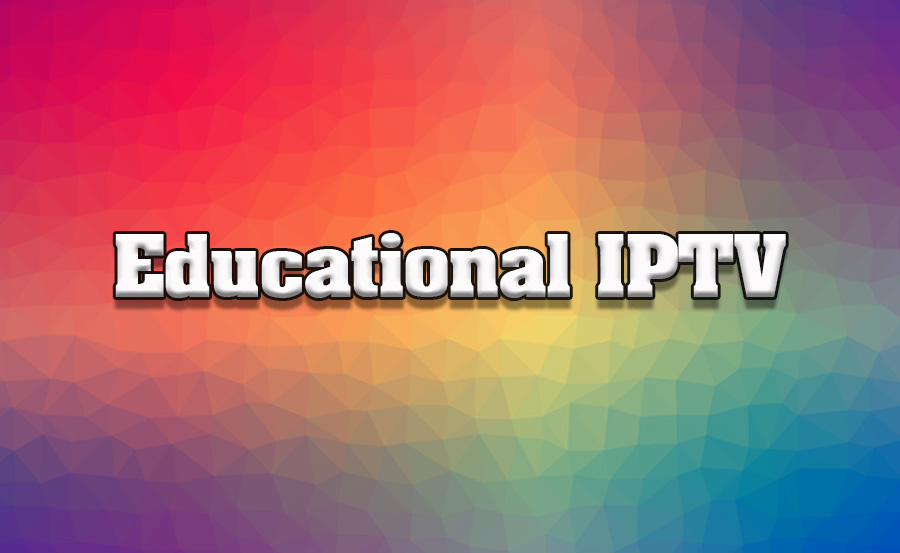The integration of IPTV (Internet Protocol Television) into educational systems has revolutionized how students, educators, and institutions access and share knowledge. IPTV offers a versatile platform for delivering educational content, fostering interactive learning, and breaking geographical barriers. Whether it’s live streaming lectures, accessing global content, or creating customized learning modules, IPTV can cater to diverse educational needs. In this article, we’ll explore how to effectively use IPTV for educational purposes and maximize its benefits in learning environments.
Buy 1 Year IPTV and Enjoy Unlimited Content
1. Understanding the Role of IPTV in Education
IPTV serves as a digital bridge, connecting learners to a wealth of educational resources. Its primary advantages include:
- Accessibility: IPTV allows students to access educational content anytime and anywhere.
- Customization: Teachers can tailor content for specific learning objectives or student groups.
- Engagement: Video-based content fosters interactive and engaging learning experiences.
- Scalability: IPTV can serve individual students or large classrooms with equal efficiency.
2. Using IPTV for Classroom Streaming
IPTV enables live and recorded streaming of lectures, workshops, and seminars, enhancing classroom experiences. Here’s how to implement it effectively:
- Live Lectures: Broadcast lessons in real-time to students in remote locations.
- Recorded Content: Provide access to recorded sessions for revision or self-paced learning.
- Guest Lectures: Stream expert talks from global educators, making high-quality education accessible.
Top IPTV Services for Kids’ Entertainment and Education
3. Enriching Distance Learning
IPTV is a game-changer for distance education programs. It offers:
- Global Access: Students can join courses from international institutions without relocating.
- Interactive Features: Chat functions, quizzes, and polls during live sessions enhance interaction.
- Flexible Schedules: Learners can revisit recorded content to accommodate their time zones.
4. Delivering Subject-Specific Content
IPTV platforms can deliver targeted content tailored to specific disciplines. Examples include:
- Science and Technology: Demonstration videos, lab experiments, and tutorials.
- Language Learning: Subtitled movies, multilingual channels, and live language sessions.
- Arts and Humanities: Documentaries, live theater performances, and art exhibitions.
5. Facilitating Collaborative Learning
IPTV supports collaborative learning by enabling:
- Group Discussions: Virtual classrooms with real-time interaction.
- Shared Content Creation: Students and teachers can upload and share educational videos.
- Community Learning: Access to forums and IPTV channels dedicated to educational discussions.
6. Accessing Global Educational Resources
IPTV opens doors to global knowledge hubs, allowing students to:
- Watch international news channels for current affairs.
- Access educational channels like National Geographic, Discovery, and BBC Learning.
- Participate in virtual tours of museums, historical sites, and research facilities.
7. Integrating IPTV with Learning Management Systems (LMS)
For seamless learning experiences, integrate IPTV with your institution’s LMS. Benefits include:
- Centralized Access: Students can access IPTV content alongside course materials.
- Performance Tracking: Monitor student progress through IPTV content engagement.
- Custom Playlists: Create course-specific playlists for organized content delivery.
8. Enhancing Teacher Training and Development
Educators can use IPTV for professional development:
- Access teaching strategy webinars and workshops.
- Review instructional videos to refine teaching techniques.
- Participate in global educator forums for knowledge exchange.
9. Overcoming Challenges in Educational IPTV Implementation
While IPTV has immense potential, challenges include:
- Infrastructure Costs: Ensure robust internet and hardware setups for streaming.
- Content Licensing: Secure rights for using premium educational channels or videos.
- User Training: Familiarize teachers and students with IPTV tools and features.
10. Future Trends in IPTV and Education
As technology evolves, IPTV in education is expected to integrate with:
- Artificial Intelligence: Personalized content recommendations based on student progress.
- Augmented and Virtual Reality: Interactive simulations for immersive learning experiences.
- Gamification: IPTV-based educational games to boost engagement.order IPTV
Conclusion
IPTV has redefined education by creating a dynamic, flexible, and inclusive learning environment. From live streaming lectures to accessing global resources, its applications are limitless. By leveraging IPTV effectively, educators and institutions can enhance the quality of education and equip students with the tools they need for success. As the technology continues to evolve, IPTV will undoubtedly play an even more significant role in shaping the future of education.
Reviewing IPTV Services with 4K and HDR Support

